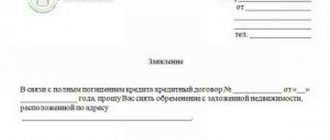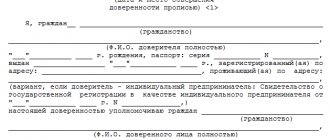Quite often, persons managing multi-apartment buildings (hereinafter - MKD), including management organizations (hereinafter - MA), homeowners' associations (hereinafter - HOA), housing construction cooperatives (hereinafter - HBC), are faced with demands from residents of managed MKD to certify any powers of attorney to perform certain actions. Let's figure out in what cases the management company/homeowners' association/housing cooperative has the right and responsibility to certify powers of attorney, whether they are obliged to do this for free or have the right to demand payment for such certification.
Power of attorney for participation in the general meeting
Part 1 of Article 48 of the Housing Code of the Russian Federation establishes that voting at a general meeting of owners of premises in an apartment building (hereinafter referred to as the GSM) is carried out by the owner of the premises in this building, both personally and through his representative . Part 2 of Article 48 of the Housing Code of the Russian Federation establishes that the representative of the owner of premises in an apartment building at a general meeting of owners of premises in this building acts in accordance with the powers based on the instructions of federal laws, acts of authorized state bodies or acts of local government bodies, or drawn up in writing voting proxy form . The power of attorney for voting must contain information about the represented owner of the premises in the corresponding apartment building and his representative (name or designation, place of residence or location, passport details) and must be drawn up in accordance with the requirements of paragraphs 3 and 4 of Article 185.1 of the Civil Code of the Russian Federation or notarized .
Clause 3 of Article 185.1 of the Civil Code of the Russian Federation establishes that a power of attorney to receive wages and other payments related to labor relations, to receive remuneration for authors and inventors, pensions, benefits and scholarships, or to receive correspondence, with the exception of valuable correspondence, can be certified by an organization in which the principal works or studies, and the administration of the inpatient medical institution in which he is being treated. Such a power of attorney is certified free of charge.
It should be noted that despite the fact that in Part 2 of Art. 48 of the Housing Code of the Russian Federation talks about a power of attorney for voting at a general meeting of owners, and in paragraph 3 of Art. 185.1 of the Civil Code of the Russian Federation we are talking about powers of attorney to receive salaries, remunerations, pensions, benefits, scholarships and correspondence, no contradiction arises. Housing legislation establishes that a power of attorney for voting at the OSS must be drawn up in accordance with the requirements of paragraphs 3 and 4 of Article 185.1 of the Civil Code of the Russian Federation, and does not at all establish that the rights of the principal for which the power of attorney is issued must comply with the specified norms of the Civil Code of the Russian Federation . These rights are precisely established by housing legislation, and such a right is voting at the OSS. That is, the housing legislation of the Russian Federation has expanded the list of rights established by paragraph 3 of Article 185.1 of the Civil Code of the Russian Federation (supplemented with the right to vote at the OSS), which can be transferred to an authorized person in the manner prescribed by this norm of the civil legislation of the Russian Federation.
Clause 3 of Article 185.1 of the Civil Code of the Russian Federation establishes a list of organizations that have the right to certify powers of attorney to perform certain actions. The fact that this is precisely a right, and not an obligation, is indicated by the wording used in this norm: “A power of attorney ... can be certified ...”. That is, the persons listed in paragraph 3 of Art. 185.1 of the Civil Code of the Russian Federation, they may agree to certify the power of attorney, or they may refuse, and if they agree, they are required to certify the power of attorney free of charge .
Such persons are: 1. the organization in which the principal works or studies; 2. administration of the inpatient medical institution where the principal is undergoing treatment.
As can be seen, from the presented list of persons approved by clause 3 of Art. 185.1 of the Civil Code of the Russian Federation, neither the management organization, nor the homeowners' association, nor the housing cooperative are vested by the current legislation with the right to certify powers of attorney for voting at the OSS. Previously, such a right was indeed provided for - clause 4 of Art. 185 of the Civil Code of the Russian Federation, as amended, valid until July 1, 2013, established: “Power of attorney to receive wages and other payments related to labor relations, to receive remuneration for authors and inventors, pensions, benefits and scholarships, citizen deposits in banks and to receive correspondence , including cash and parcel, can also be certified by the organization in which the principal works or studies, the housing maintenance organization at his place of residence and the administration of the inpatient medical institution in which he is being treated,” however, at present this norm is not is valid, and the management association/homeowners' association/housing cooperative does not have the right to certify proxies for voting in the OSS .
This position is confirmed by judicial practice. For example, the Saratov Regional Court, in an appeal ruling dated June 9, 2021 in case No. 33-3375, established: “the general provisions on the power of attorney, as well as the rules for certifying the power of attorney, are contained in Art. Art. 185, 185.1 Civil Code of the Russian Federation. At the same time, the rules contained in the previously valid version of paragraphs 4, 5 of Art. 185 of the Civil Code of the Russian Federation before amendments were made to it by Federal Law No. 100-FZ of 05/07/2013, this law is set out in the newly introduced Art. 185.1 of the Civil Code of the Russian Federation, clause 3 of which provides that a power of attorney to receive wages and other payments related to labor relations, to receive remuneration for authors and inventors, pensions, benefits and scholarships or to receive correspondence, with the exception of valuable correspondence, can be certified the organization in which the principal works or studies, and the administration of the inpatient medical institution in which he is being treated. An analysis of both the previously effective version of the articles of the Civil Code of the Russian Federation and the current articles on the rules for certifying powers of attorney allows us to conclude that the power of attorney of homeowners for the right to vote at a general meeting is subject to certification by a specific third party (at the place of work, study, treatment), in the list of which HOA (TSN) is not designated. Under such circumstances, contrary to the arguments of the complaint, the judicial panel agrees with the conclusion of the court of first instance to exclude, when checking the quorum of the general meeting , the votes of the owners of the premises acting on the basis of certified TSN “TSN of the house of Rakhova 44/54” OGRN 1156454000152 at the place of residence of the owners of powers of attorney .”
M.Yu. Tikhomirov in his publication “Management of an Apartment Building: New Legislative Requirements” also notes: at present, the norms of civil legislation devoted to the execution of powers of attorney for citizens and legal entities, which are referred to in Part 2 of Art. 48 of the Code are contained in paragraphs 3 and 4 of Art. 185.1 of the Civil Code of the Russian Federation. Within the meaning of these norms, a power of attorney on behalf of a citizen to his representative at a general meeting of owners of premises in an apartment building can be certified by the organization in which the principal works or studies, and by the administration of the inpatient medical institution in which he is being treated . Such a power of attorney is certified free of charge.
From the above it follows that powers of attorney for participation in OSS can either be certified by a notary or certified free of charge by the organization in which the principal works, studies or is undergoing treatment. The above list is exhaustive and does not contain MA/HOA/housing cooperative. It is worth additionally noting that, for example, the unemployed and pensioners who are not undergoing treatment in a hospital facility can only issue notarized powers of attorney for the right to vote at the OSS.
Clause 4 of Article 185.1 of the Civil Code of the Russian Federation does not give rise to disputes; this norm applies if the owner of the premises in an apartment building is a legal entity, and this legal entity issues a power of attorney for the right to vote at the OSS to any individual. In this case, the power of attorney must be signed by the head of the legal entity or another person authorized to do so by law or constituent documents. Do not forget about persons who have the right to act on behalf of a legal entity without a power of attorney. In this case, to confirm the right to vote at the general meeting of owners, instead of a power of attorney, a valid extract from the unified state register of legal entities will be required.
Who can authorize a representative and sign a document?
If the HOA meeting needs to delegate certain powers to someone, this can be done by a member of the board, for example the chairman of the HOA. However, it is worth noting that it is also impossible to act without the knowledge of the meeting or board .
The transfer of authority must be carefully discussed and approved.
In this case, the person granting the power of attorney must be an authorized representative of the HOA and have the right to act without presenting certain documents.
Such people are clearly stated in paragraph 1 of Article 53 of the Civil Code of the Russian Federation.
However, such a document can be signed by :
- executive body of the HOA;
- another person designated by law or the charter of the partnership.
Attention. All this is clearly indicated in paragraph 4 of Article 185.1 of the Civil Code of the Russian Federation. If you believe her, then the people mentioned can certify the document with their signature.
In addition, the paper must be certified by a seal. It is worth noting that such a requirement is not contained in the Civil Code of the Russian Federation, but it can be seen, for example, in Article 53 of the Civil Procedure Code of the Russian Federation and Article 61 of the Arbitration Procedure Code of the Russian Federation.
Power of attorney for representation in court
Paragraph 2 of Article 53 of the Civil Procedure Code of the Russian Federation dated November 14, 2002 No. 138-FZ establishes: “Powers of attorney issued by citizens can be certified by a notary or by the organization in which the principal works or studies, a homeowners’ association, a housing, housing -a construction or other specialized consumer cooperative that manages an apartment building, a management organization at the principal’s place of residence , the administration of a social service organization in which the principal is located, as well as an inpatient medical institution in which the principal is undergoing treatment...”
As follows from the above norm, the management company/homeowners association/housing cooperative have the right to certify powers of attorney if the principal (the person who issues the power of attorney to the attorney to perform legally significant actions) lives in a house managed by this organization. It is important to note several significant points:
1. The management company/homeowners' association/housing cooperative has the right to certify a power of attorney when only the principal applies. The essence of certifying a power of attorney is to confirm that it is the person who has a certain right who actually transfers this right to another person, that is, the fact that the power of attorney is signed by the right holder indicated in the power of attorney as the principal is verified. Consequently, when applying for a power of attorney not from the principal, but from an attorney or other person, the management company/homeowners association/housing cooperative does not have the right to certify such a power of attorney under any circumstances;
2. A power of attorney can be certified by the MA/HOA/housing cooperative only at the place of residence of the principal, regardless of the ownership of the residential premises. If the principal owns the premises in a house managed by the MA, but is registered at a different address, the MA does not have the right to certify the power of attorney of such a principal.
3. The current legislation of the Russian Federation does not establish that in the case provided for in paragraph 2 of Art. 53 of the Code of Civil Procedure of the Russian Federation, management organizations/homeowners' associations/housing cooperatives are required to certify the power of attorney free of charge. Thus, there is no prohibition on the approval of the MA/HOA/housing cooperative of the cost of the service for certification of powers of attorney and the provision of certification services on a paid basis. It should be noted that in one sentence defining the options for certifying powers of attorney, the possibility of certifying a power of attorney both by the management authority/homeowners association/housing cooperative and by a notary is indicated. It is well known that notary services are paid; the norm in question does not contain any clauses on the obligation of other persons to certify the same powers of attorney for free (unlike, for example, the previously discussed clause 3 of Article 185.1 of the Civil Code of the Russian Federation). Consequently, the management organization/homeowners' association/housing cooperative has the right to provide services for certification of powers of attorney on a paid basis (for example, the Fourteenth Arbitration Court of Appeal in the Resolution of March 19, 2014 in case No. A05-12575/2013 notes that in relation to powers of attorney certified by management organizations , neither the Housing Code of the Russian Federation nor other regulations stipulate that certification of such powers of attorney should be free of charge).
4. The phrase “powers of attorney... can be certified ...” indicates the right of the management company/homeowners association/housing cooperative to certify powers of attorney, and not the obligation to do so. That is, an organization has the right to refuse to certify a power of attorney (even for a fee), since this is its right and not an obligation . Consequently, the owner or tenant of premises in a house managed by such an organization does not have the right to demand that a power of attorney be certified to him (although the principal has the right to apply for such a certificate, but the unconditional obligation of the management company/homeowners association/housing cooperative to carry out such certification is not established by law).
5. The right to certify powers of attorney is enshrined in clause 2 of Art. 53 of the Code of Civil Procedure of the Russian Federation, this norm is included in Chapter 5 of the Code of Civil Procedure of the Russian Federation “Representation in Court”, from which it follows that the management company/homeowners association/housing cooperative, in accordance with this norm, has the right to certify powers of attorney only for representation of interests in the courts .
What is a HOA power of attorney?
A HOA power of attorney is a written authorization through which one individual (for example, an owner) or official person, or organization can transfer the powers or rights that belong to it to someone else .
If a power of attorney has been drawn up in the name of a citizen, then he gets the opportunity to carry out various significant actions on behalf of the person who transferred his powers to him through such a paper.
A similar document can be found in several versions, for example:
- Personal or private powers of attorney.
- Official or official powers of attorney, which are issued on a general or specially designed form. The latter can be a sheet of paper in A4 or A5 format.
Important. The size is selected depending on the amount of text contained in the document.
When is paper considered unusable?
All grounds due to which a power of attorney can be declared invalid are divided by law into :
- common reasons;
- special grounds that occur only in certain legal transactions.
A document may be declared invalid as a result of improper execution, for example, if the principal forgot to indicate the exact date of its preparation. Just such reasons apply to the special requirements for legal papers.
Attention! The paper granting powers to the representative may be regulated by certain laws. In such a situation, the law may require a certain form of drafting. If the principal does not comply with such requirements, then the document will also be invalid.
There is nothing complicated in drawing up the document in question. But there are some nuances depending on the type of power of attorney. If you do not lose sight of them, you can avoid difficulties in the future. In addition, do not forget about certification by a notary. Without this procedure, the document will not have legal force.






